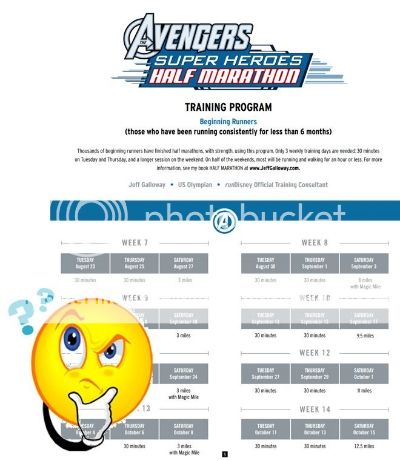Sleepless Knight
Jedi Knight Seeking His Jedi Princess
- Joined
- May 15, 2008
- Messages
- 4,997
My cross training is weight lifting. I choose to train on a treadmill so I do weightlifting right before my 30-45 minutes of running. Depending on how long my weekend run is, I may not lift before the run, but that's usually only on the really long runs. Keep in mind I like to keep the amount I lift within reason. In order to build muscle, you have to increase weight, but I also want to make sure that I don't overdo the weight lifting to a degree that it has a negative impact on my running.Thanks for your feedback! What type of cross training did you do? I just ordered a hydration pack that is very highly rated on Amazon. I think I might need a bit more hydration and nutrition on the course. I also need them for training walks. Even short ones. I went out for 3 miles on Thursday and by 2 miles I was parched. 85 degrees at over 6,000 feet... it probably makes a difference.
I also feel like being a little bit tired and sore before my run helps psychologically with learning how to push myself when I'm tired and sore. When I'm tempted to cut a 45 minute run short for stupid reasons (I'm tired, hungry, want to go home), I remind myself that the extra 15 minutes will matter on race day. So much of running is mental and very individual. You need to figure out what works best for you.

